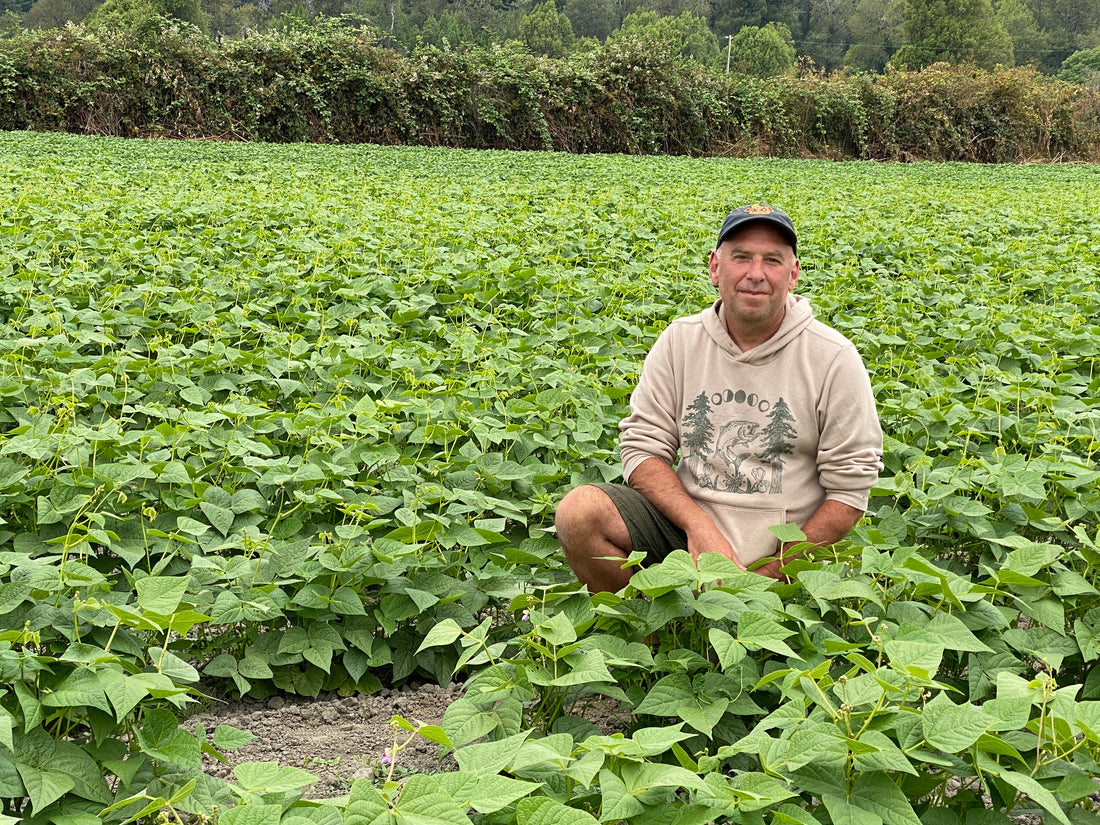I recently sat down to chat with our farming partner, Ed Cohen. We talked about the rebellious nature of surfing and farming, how to grow food without water, and the challenges of farming ethically in an industrialized food system. Our discussion served as a reminder that the labels we're given in life rarely come close to describing the important things — our nature, our values, and our life's work.
- Maggie (Co-Founder)
Part I: SURFER
Ed moved to the Southern California coast when he was eleven. He spent his teenage years and much of his twenties as a self-described rebel, swearing off any sort of corporate life, and living as a punk rock surfer.
"There was no inkling that I would veer towards growing things of any sort."
But a slow journey north along the coast eventually landed him in Humboldt County where he felt an immediate connection to the people and the land. When he started working for a third-generation organic farmer named Paul Giuntoli, something clicked and his love for farming unfolded. Ed had something to say about the seeming disparity between the life of surfing and farming.
“The common thread for a lot of farmers seems to be a sort of resilience and some sort of rebellious nature. It’s an interesting theme when you talk to farmers… I felt like that (surfing) led me, in an indirect way, to farming”.
Part II: ORGANIC FARMER
From the moment Ed bought his farm, there was never any doubt he would treat the land with utmost respect.
"I consider myself an environmentalist - I care about what is done to our surroundings, our environment, I would never ever do it any other way. There was never a consideration that I would grow conventional."
Ed is not only an organic farmer, but he also practices dry farming - meaning he doesn't use water to grow his beans. For this sustainable method to work, farmers need land with good water holding properties (which Ed's farm thankfully has) and special planting practices (which Ed follows). For instance, when planting seeds, he sets them extra deep to access more moisture and he packs the soil to trap water. (More on dry farming here).
There are trade-offs to dry-farming, the greatest of which is a lower yield. But Ed says the benefits are worth it; you avoid weed outbreaks, there are headaches that come with irrigation, and it preserves the soil. Plus, he says the taste and texture stand-out.

PART III: GOOD HUMAN
I asked Ed to talk about his biggest challenges. I thought he'd start and finish with the weather. Not so. Ed's biggest challenges relate to finding and keeping good talent. But as with farming organically, he puts principles above profit here too.
"I pay people well above average. And that's just not to keep them happy. That's my ethic of paying people what they should be paid."
Ed's other challenge comes from the price setting by farm corporations.
"Small organic farms are beholden to the big giant corporate organic farms that are thousands of acres and they pretty much set the prices based on what is going on in their fields."
Bigger corporate grocery stores will always follow the bottom line but small, local grocers have built a relationship with Ed and appreciate that while he can't always match on price, he operates with integrity and does what's right, even when prices soar and he could charge far more.
Every time I talk with Ed, I leave our conversations smiling and confident that his beans are exceptional in every way - for us, the planet, and the people who work with him. This call only reinforced those sentiments. We couldn't be happier to support Ed and celebrate not just his farming, but his values.

Thanks Ed!,
- Maggie
